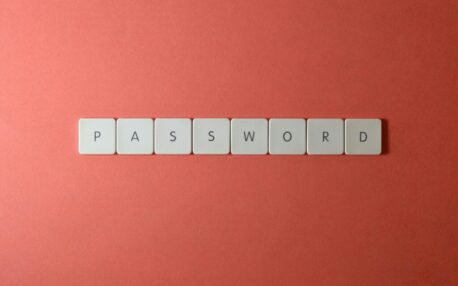
“Weak passwords are responsible for 80% of all data breaches. For nonprofits handling sensitive donor data and financial records, a single compromised password can lead to devastating consequences. Ensure that your passwords are strong, unique, and regularly updated.”
Is Your Nonprofit’s Login Secure?
Every May 1st, we observe Password Day, a time to reflect on one of the most critical aspects of cybersecurity. The protection of our digital identities. With cyberattacks happening every 39 seconds, and the average data breach costing $4.45 million, securing your passwords is essential, especially for nonprofit organizations and charities handling sensitive donor information.
For nonprofits, password security isn’t just about protecting data—it’s about safeguarding the trust of your supporters. These organizations are often underfunded, making them prime targets for cybercriminals.
WHY PASSWORD SECURITY MATTERS FOR NONPROFITS?
Your login credentials is the first line of defense against cybercriminals. Research shows that nearly half of people lack confidence in their password security. Weak passwords, such as those with 8 characters or less, are still far too common.
For charities and nonprofits, a compromised password could lead to breaches that expose donor data, financial records, and internal communications. The consequences can go beyond financial losses, potentially damaging your organization’s hard-earned reputation.
Build Stronger Logins: What You Need to Know
To protect your nonprofit or charity, follow these simple guidelines for creating secure logins:
- Length matters: Aim for at least 12 characters, ideally 16 or more.
- Use a mix: Combine uppercase and lowercase letters, numbers, and special characters.
- Avoid personal details: Do not use easily guessable information like names or birthdays.
- No patterns: Avoid using common sequences like “1234” or “abcd.”
- Unique passwords: Ensure each account has a different password to prevent a breach from spreading across platforms.
For simplicity, use a password manager to generate and store complex passwords.
The Impact of Weak Passwords
Weak login protections can lead to severe consequences. Cybercriminals can:
- Access sensitive information, such as donor details and financial records.
- Steal funds or commit identity theft.
- Launch attacks or hold data for ransom.
For nonprofits, these breaches can cause significant financial strain and erode donor trust. In 2019, 80% of data breaches were linked to compromised credentials, imagine the impact if a hacker accessed your donor database.
Easy Ways to Boost Login Security for Nonprofits:
- Enable Multi-Factor Authentication (MFA): MFA adds an extra layer of security to your passwords.
- Use a Password Manager: These tools securely store and generate unique passwords for every account.
- Educate Your Team: Regularly teach staff about best practices for password security.
- Update Passwords Regularly: Change passwords if you suspect any breach.
- Consider Identity Theft Protection: Monitor your organization’s information for suspicious activity.
HOW PASSWORD SECURITY SAVES RESOURCES
Good password security not only prevents data breaches but also saves time and money. Recovering from a breach can be costly, both financially and reputationally. By adopting strong password practices, nonprofits demonstrate responsible stewardship of sensitive information and reduce risks.
Additionally, strong password security minimizes disruptions, allowing team members to focus on their mission rather than on recovery from a breach.
Quick Cyber Hygiene Tips to Start Today
- Test your passwords using a trusted checker.
- Enable MFA on accounts that support it.
- Start using a password manager.
- Conduct a cybersecurity audit to identify vulnerabilities.
- Share credential security tips with your team.


